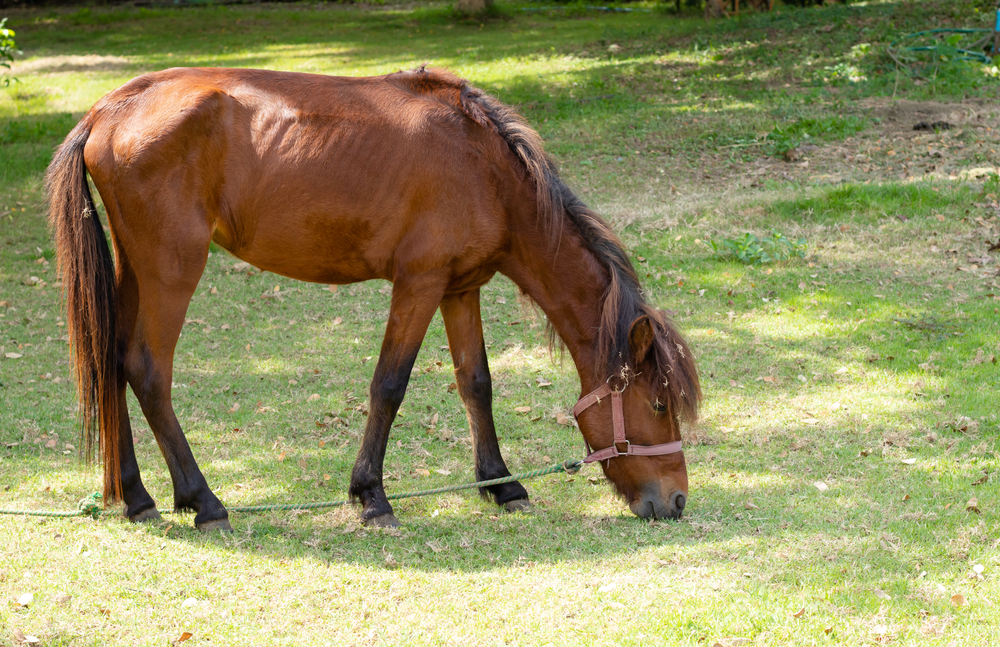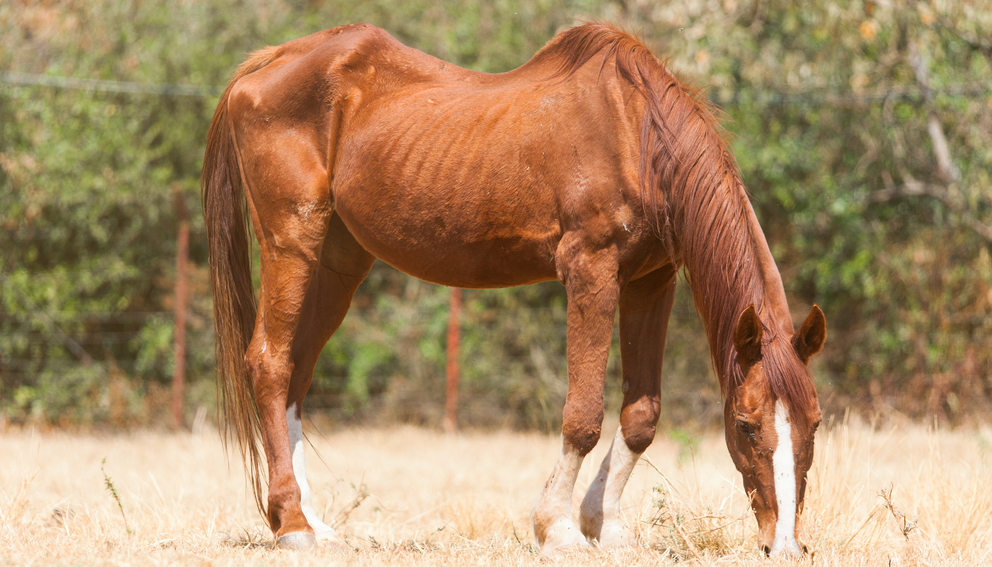Nourishing Equine Wellness: A Guide to Feeding the Underweight Horse
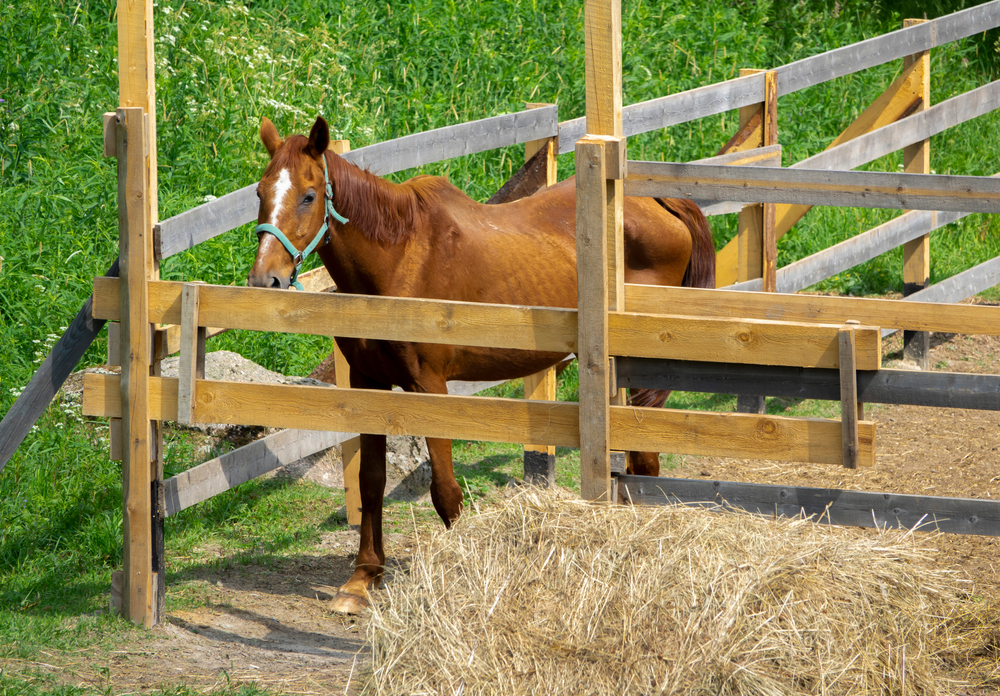
Signs Your Horse May Be Underweight
• Visible Rib Cage and Backbone: If your horse’s ribs and backbone are easily visible, it may be a sign of insufficient body fat.
• Prominent Withers and Pelvis: Withers and pelvic bones sticking out can be indicative of a horse being underweight.
• Lack of Muscle Tone: A horse lacking proper weight may exhibit reduced muscle tone, especially along the topline.
• Dull or Rough Coat: Poor nutrition can affect the coat’s health, leading to a dull or rough appearance.
• Decreased Energy Levels: A drop in energy levels and overall lethargy may suggest your horse is not getting the necessary nutrients.
• Behavioral Changes: Changes in behavior, such as increased irritability or a decrease in social interaction, can be linked to nutritional deficiencies.
Feeding the Underweight Horse
Quality Forage:
Ensure your horse has access to high-quality forage, such as grass hay or alfalfa, to provide essential fiber and nutrients.
Balanced Feed:
Choose a balanced feed with the right combination of protein, vitamins, and minerals to support weight gain.
Frequent, Smaller Meals:
Divide your horse’s daily feedings into smaller, more frequent meals to aid digestion and nutrient absorption.
Supplements:
Work with your veterinarian to determine if your horse requires any additional supplements to address specific nutritional deficiencies.
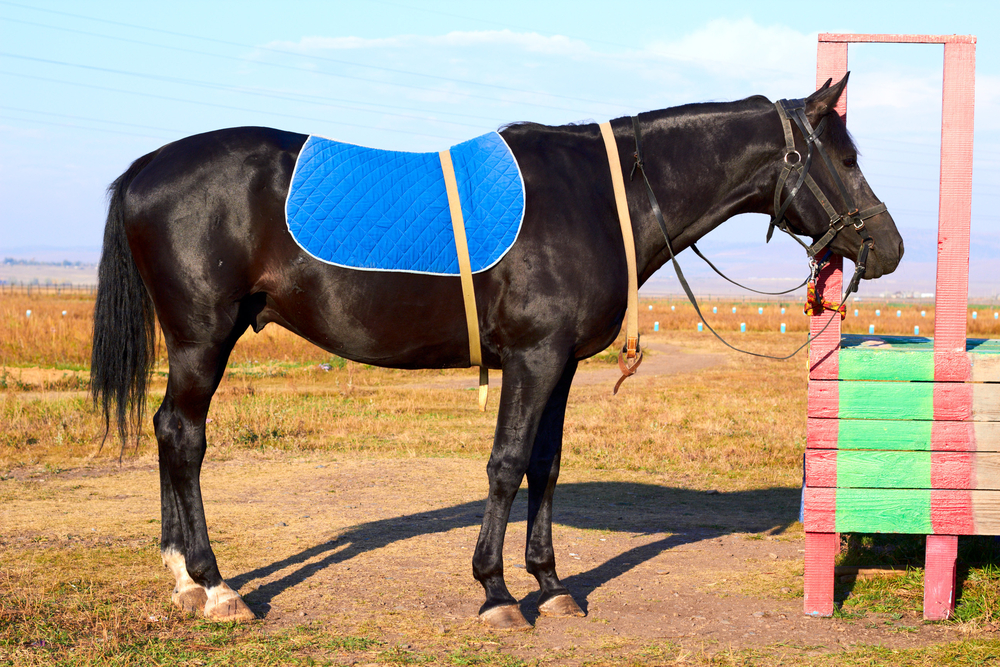
Have You Considered Nutritional Counseling For Your Equine Companion?
Every horse is unique, and crafting a balanced diet requires tailoring it to individual needs. Whether you’re caring for a growing foal, a robust adult, a horse with specific health concerns, an expecting mare, or an aging equine companion, their nutritional requirements evolve throughout their lifetime.
Our dedicated veterinarians at Adobe Veterinary Center, specialize in creating personalized dietary plans based on factors such as your horse’s age, overall condition, usage, health considerations, and individual needs. From suggesting appropriate feed options and portion sizes to recommending essential nutritional supplements like vitamins and minerals, along with hydration guidelines, we ensure that your horse receives a tailored diet to maintain optimal health and sustained energy levels.
Closing the Gap: Nourishing Your Underweight Horse with Adobe Veterinary Center's Expertise
